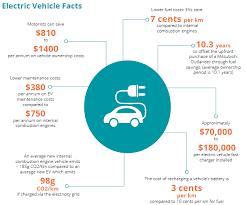
N.Y. Times news on Electric and Hybrid vehicles


-
Olympics
-
Ford Will Make a Play for a Different Battery Market
The company, long focused on cars and trucks, plans to begin manufacturing large batteries used by utilities, data centers, other businesses and homeowners. -
Laid-Off Battery Plant Workers Pin Blame on Ford, not Trump, for Lost Jobs
Ford Motor shut down a battery factory and laid off 1,600 workers after President Trump and Republicans gutted government support for electric vehicles. -
Ford Says Electric Vehicle Losses Will Continue for 3 More Years
Ford Motor reported a big loss for 2025 because of its troubled electric vehicle division, which it has significantly scaled back. -
Toyota Names Kenta Kon C.E.O. as Automaker Faces Tariffs and Increasing Competition
The world’s biggest automaker has navigated the industry’s turbulent E.V. transition, but is looking to new leadership to manage intensifying geopolitical challenges. -
Stellantis’s Shift Away From Electric Cars Will Cost It $26 Billion
The company, which owns Chrysler, Fiat, Jeep and Peugeot, is changing its strategy to gasoline and hybrid vehicles in an effort to revive weak sales. -
Carney Increases E.V. Investments as Trump’s Trade Policy Disrupts Canada’s Auto Industry
Prime Minister Mark Carney announced several measures Thursday aimed at making Canada a global leader in electric vehicles and rescuing an industry ravaged by U.S. trade policy. -
Tesla’s Model S, Soon to Be History, Changed the Auto Industry
The company’s chief executive, Elon Musk, said this week that it would stop making the car, an electric pioneer in 2012, as well as the Model X. -
Tesla Profit Slumps, but Investors May Not Care
The automaker also said it would invest $2 billion in xAI, the artificial intelligence company controlled by its C.E.O., Elon Musk, and stop making the two oldest models in its lineup. -
G.M. Shares Rise as Investors Are Encouraged by 2026 Prospects
The automaker said that it would buy back stock worth up to $6 billion and that it expected profit to rise this year after it pulled back from electric vehicle production. -
U.S. Automakers’ Foreign Troubles Now Extend to Canada
U.S. trade policy has devastated the Canadian auto industry and pushed the country to reach an agreement that will make it easier for Chinese companies to sell cars there. -
Driving in Winter? Follow These Expert Tips to Arrive Safely.
A storm is expected to bring hazardous driving conditions to much of the United States this weekend. Stay home if you can, but those who must travel should take it slow. -
Europe and China Take Step to Resolve Dispute on Electric Vehicles
The European Commission allowed carmakers to volunteer limits on their imports from China instead of paying tariffs, an arrangement that could help Volkswagen. -
To Race in F1, Colton Herta Goes Backward to Go Forward
He left the IndyCar Series to pursue a Formula 1 career, by way of Formula 2. -
Trump Administration Ends Credit for Start-Stop Feature in Cars
Manufacturers will no longer get a credit toward vehicle emissions standards by installing engines that automatically stop at red lights.
Copyright ©
2001 - 2026
Cool Fire Technology LLC